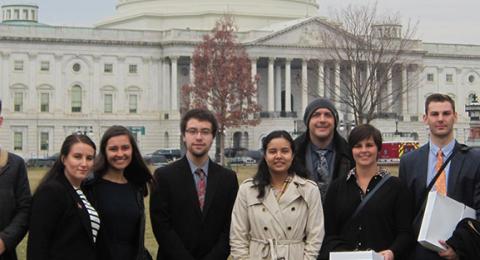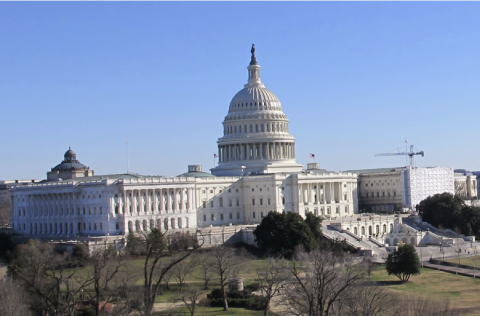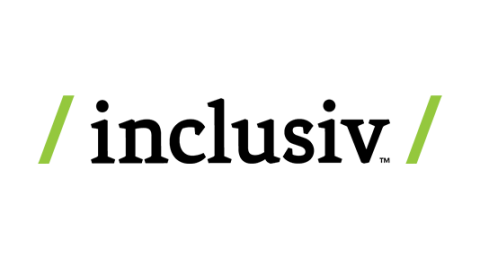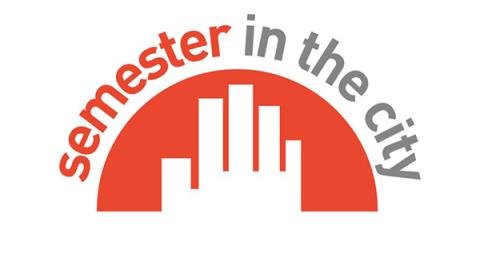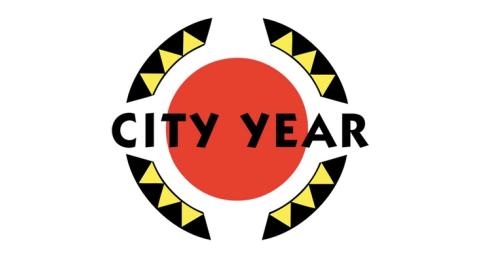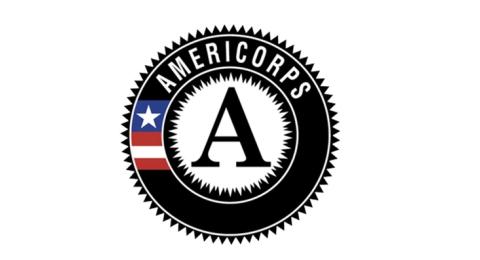The Carsey School's Master's in Public Policy graduate program prepares policy leaders of tomorrow with the critical skills and experience sought across the full range of policymaking and advocacy employers. You’ll learn from experts in their policy fields, connect with policy practitioners and leaders working inside and outside of Washington, D.C., and become intimately familiar with major public policy issues and debates. This is a degree for students who want to make change happen to build a better, more sustainable, future for their communities, state, country, and planet. Our MPP degree program also complements the Juris Doctor.
Application Deadlines: Apr. 15 (Summer Term) ● Aug. 1 (Fall Term) ● Dec. 15 (Spring Term)
- In Person
- 40 Credit Hours
- 16 Months
- No GRE Required
- Tuition Cost
WHY GET A MASTER’S DEGREE IN PUBLIC POLICY?
Our Master in Public Policy (MPP) offers you the tools you need to make a difference and create change in the challenging environment of 21st-century policymaking. You’ll learn how to develop transformative, sustainable approaches to societal problems through research and analysis, and how to strategically communicate those ideas to bring them to fruition. In addition to equipping you to serve in a variety of public policy jobs, our MPP program will provide you with the skills to address the pressing issues that matter to you — locally, nationally and globally.
WHY CHOOSE UNH’S MASTER PUBLIC POLICY PROGRAM?
In our Master in Public Policy, you’ll create a personalized degree based on your interests and graduate with the skill sets that today’s policy professionals need to succeed —analytical expertise, strategic communication skills and the tools for advancing a policy agenda. Built into the unique MPP degree curriculum are experiential learning opportunities designed to deepen and broaden your education. These include meeting with key policymakers in Congress, the White House, government agencies, advocacy groups and more throughout your semesters on campus and during our Washington, D.C., colloquium. Build practical experience through a policy internship and capstone project, all while earning your MPP degree in just 16 months.
POTENTIAL CAREERS
- Policy/program/research/political staff/leadership
- Policy advocate
- Legislative staff/management
- Sustainability manager
- Communications professional
- Community outreach partner
- Government affairs/relations
- Consultant
- Non-profit president, CEO, executive director, COO
- Elected official
- Think tank research
- Policy analyst
Curriculum & Requirements
The Master in Public Policy degree (MPP) offers you the opportunity to learn the skills you need to succeed in today’s public policy jobs—analytical expertise, strategic vision, clear and compelling communications, and the tools of leadership. This master's in public policy program is ideal whether you will be completing your bachelor’s degree in the near future or are currently working in a policy-related field. Choose a track focused on public policy analysis or strategy and communications—and select from a broad range of electives to personalize your degree plan. Built into the unique curriculum are a variety of experiential learning opportunities to deepen and broaden what you learn in the classroom, such as:
- Colloquium in Washington, DC: Immerse yourself in the Capitol scene – meeting with leaders in Congress, the White House, government agencies, political parties, advocacy groups, think tanks, and more
- Policy Internship: Work in a policy-focused organization to gain practical, real-world experience and a valuable perspective on careers in public policy
- Capstone Project: Employ the MPP skills you have gained to delve deeply into a specific policy area to produce a comprehensive written report and oral presentation
Earn your MPP degree in as little as 16 months. You can also choose to earn your MPP degree over a longer period by attending part time. Note that the GRE is not required to apply for this degree program.
Program Delivery & Location: Academic courses are offered in person on the UNH Durham campus with a portion of the experiential learning taking place offsite: in Washington, DC, for the Colloquium and at the Internship site location during the MPP Internship experience.
SAMPLE 16-MONTH FULL-TIME DEGREE COMPLETION PLAN
Fall Start (Typical)
| First Year | ||
|---|---|---|
| Fall | Credits | |
| PPOL 806 | Fundamentals of Policy Analysis | 3 |
| PPOL 904 | Economics for Public Policy | 3 |
| PPOL 908 | Quantitative Methods for Policy Research | 3 |
| MPP Public Policy Track Course 2 | 3 | |
| Credits | 12 | |
| January Term | ||
| PPOL 950 | Washington DC Colloquium | 3 |
| Credits | 3 | |
| Spring | ||
| PPOL 810 | Policy Across Borders | 3 |
| PPOL 902 | Strategy and Practice of Public Policy | 3 |
| PPOL 990A | Policy Capstone Planning | 1 |
| MPP Public Policy Track Course 2 | 3 | |
| Elective Course (choose an MPP-Approved Elective Course) 2, 3 | 3 | |
| Credits | 13 | |
| Summer | ||
| PPOL 998A or PPOL 998 | Policy Internship 1 or Policy Internship | 0 |
| Credits | 0 | |
| Second Year | ||
| Fall | ||
| PPOL 990 | Policy Capstone | 3 |
| Elective Course (choose an MPP-Approved Elective course) 2, 3 | 3 | |
| Elective Course (choose an MPP-Approved Elective course) 2, 3 | 3 | |
| Elective Course (choose an MPP-Approved Elective course) 2, 3 | 3 | |
| Credits | 12 | |
| Total Credits | 40 | |
Spring Start
| First Year | ||
|---|---|---|
| Spring | Credits | |
| PPOL 810 | Policy Across Borders | 3 |
| PPOL 902 | Strategy and Practice of Public Policy | 3 |
| MPP Public Policy Track Course 2 | 3 | |
| Elective Course (choose an MPP-Approved elective course) 2, 3 | 3 | |
| Credits | 12 | |
| Summer | ||
| PPOL 998A or PPOL 998 | Policy Internship 1 or Policy Internship | 0 |
| Credits | 0 | |
| Fall | ||
| PPOL 806 | Fundamentals of Policy Analysis | 3 |
| PPOL 904 | Economics for Public Policy | 3 |
| PPOL 908 | Quantitative Methods for Policy Research | 3 |
| PPOL 990A | Policy Capstone Planning | 1 |
| MPP Public Policy Track Course 2 | 3 | |
| Credits | 13 | |
| January Term | ||
| PPOL 950 | Washington DC Colloquium | 3 |
| Credits | 3 | |
| Second Year | ||
| Spring | ||
| PPOL 990 | Policy Capstone | 3 |
| Elective Course (choose an MPP-Approved elective course) 3 | 3 | |
| Elective Course (choose an MPP-Approved elective course) 3 | 3 | |
| Elective Course (choose an MPP-Approved elective course) 3 | 3 | |
| Credits | 12 | |
| Total Credits | 40 | |
- 1
In special cases and with your Graduate Academic Advisor's permission, the Policy Internship may be taken for credit (PPOL 998, 3 credits), supervised by a faculty member who will provide the academic structure to parallel the applied experience. If this is the case, the required number of MPP-Approved elective courses is reduced to three (3) courses.
- 2
Students choose two (2) courses from either the Strategy and Communication Track or the Policy Analysis Track. Courses in both tracks can also be taken as open elective courses.
- 3
MPP-Approved elective courses are available in many substantive areas. Students may also propose additional electives if they make sense in terms of the student’s interests and academic plan. Discussion with your Graduate Academic Advisor should inform this choice.
Degree Requirements
Students enrolled in the Carsey School's Master in Public Policy program (MPP degree) are required to complete a forty (40) credit program, consisting of:
- Five (5) CORE Curriculum Courses
- Four (4) EXPERIENTIAL LEARNING Activities
- Two (2) PUBLIC POLICY TRACK Courses (Strategy and Communication Track or Policy Analysis Track)
- Four (4) ELECTIVE Courses
These provide the foundational analytical, strategic, and communication skills for a successful career in the world of public policy making. Students focus their public policy studies by choosing either the Strategy and Communication Track or the Policy Analysis Track and complete two courses in one of the tracks. Courses in both tracks can also be taken as open electives. Further opportunities for depth and specialization in substantive policy areas are provided by open elective courses which vary by semester. As culminating graduate experiences, students apply what they've learned through an MPP internship at a policy-oriented organization as well as conducting a capstone project by delving deeply into a policy area of interest. Both of these experiences are provided with guidance from faculty mentors.
Students are advised to have taken an introductory level economics class prior to starting the MPP program such as a “principles of economics” (macro or micro). Students should consult with their Graduate Academic Advisor to confirm that the course(s) previously taken are sufficient or for suggestions of which courses could be taken prior to starting the MPP program.
| Code | Title | Credits |
|---|---|---|
| MPP CORE Curriculum Courses (5 Courses) | ||
| PPOL 806 | Fundamentals of Policy Analysis | 3 |
| PPOL 810 | Policy Across Borders | 3 |
| PPOL 902 | Strategy and Practice of Public Policy | 3 |
| PPOL 904 | Economics for Public Policy | 3 |
| PPOL 908 | Quantitative Methods for Policy Research | 3 |
| MPP EXPERIENTIAL LEARNING Activities (4 Courses) | ||
| PPOL 950 | Washington DC Colloquium | 3 |
| PPOL 990A | Policy Capstone Planning | 1 |
| PPOL 990 | Policy Capstone | 3 |
| PPOL 998A | Policy Internship 1 | 0 |
| or PPOL 998 | Policy Internship | |
| PUBLIC POLICY TRACK (2 Courses) 2 | ||
| Two (2) courses are selected based upon the chosen track: Strategy and Communication Track or Policy Analysis Track | 6 | |
| ELECTIVE Courses (4 Courses) 1, 3 | ||
| Four (4) open elective courses are selected in substantive areas approved by the MPP program (or 3 open elective courses if the Policy Internship is taken for credit, PPOL 998) 1 | 12 | |
| Total Credits | 40 | |
- 1
In special cases and with your Graduate Academic Advisor's permission, the Policy Internship may be taken for credit (PPOL 998, 3 credits), supervised by a faculty member who will provide the academic structure to parallel the applied experience. If this is the case, the required number of MPP-Approved elective courses is reduced to three (3) courses.
- 2
Students choose two (2) courses from either the Strategy and Communication Track or the Policy Analysis Track. Courses in both tracks can also be taken as open elective courses.
- 3
MPP-Approved elective courses are available in many substantive areas. Students may also propose additional electives if they make sense in terms of the student’s interests and academic plan. Discussion with your Graduate Academic Advisor should inform this choice.
Accelerated Master's Overview
Accelerated Master’s programs offer qualified University of New Hampshire undergraduate students the opportunity to begin graduate coursework in select graduate programs while completing a bachelor’s degree. Accelerated master's programs are designed to provide students with an efficient and cost-effective pathway to earn both a bachelor's and master's degree or graduate certificate, enhancing career opportunities and long-term earning potential.
Accelerated Master's Highlights
- Begin studying advanced topics while an undergraduate student with the opportunity to complete a master’s degree or graduate certificate early.
- Master’s degree program students: Earn up to 12* graduate (800-level) course credits while completing a bachelor’s degree. This coursework will count as dual-credit toward both the bachelor’s and master’s degrees.
- Graduate certificate program students: Earn up to 8* graduate (800-level) course credits while completing a bachelor’s degree. This coursework will count as dual-credit toward both the bachelor’s degree and the graduate certificate.
- Students complete the bachelor’s degree, and then officially matriculate into the master’s or graduate certificate program to complete the remaining required graduate-level coursework.
*Some exceptions apply.
Accelerated Master's Admission Requirements
- A minimum 3.2 cumulative GPA is required.*
- A minimum of 90 undergraduate credits must be completed prior to enrolling in graduate (800-level) courses.
- Streamlined Graduate School Application (two letters of recommendation; most standardized tests and application fee are waived).*
*Some exceptions apply.
Accelerated Master's Requirements
- Students must attend a mandatory orientation session.
- Students must submit a special registration form each semester for dual-credit courses and note any DegreeWorks exceptions.
- Students may defer graduate matriculation for up to one year after earning their bachelor’s degree in most programs.
- See the Accelerated Master’s Catalog Policy and Accelerated Master’s Website for additional information and a list of programs. Note that some programs have additional requirements (e.g. higher-grade expectations) compared to the general policy.
Public Policy (M.P.P.) Accelerated Option
This graduate degree program is approved to be taken on an accelerated basis in articulation with the following undergraduate program(s):
College of Health and Human Services
| Code | Title | Credits |
|---|---|---|
| Recreation Management & Policy: Outdoor Leadership and Management Option (B.S.) | ||
| Recreation Management & Policy: Program and Event Management Option (B.S.) | ||
| Recreation Management & Policy: Therapeutic Recreation Option (B.S.) | ||
| Students may select up to four (4) 800-level courses (12 credits total) from the following: | ||
Community Development Policy and Practice (M.A.) courses: | ||
DPP 801 | Integrative Approaches to Development Policy and Practice | |
DPP 802 | Economic Analysis for Development | |
DPP 805 | Fiscal Management for Development Organizations | |
DPP 806 | Organizational Management and Leadership | |
Global Conflict & Human Security (M.S.) courses: | ||
GCHS 810 | Conflict & Human Security | |
GCHS 820 | Global Governance | |
GCHS 830 | International Development & Human Security | |
GCHS 840 | Sustainable Development: Gender-Environment Nexus | |
GCHS 850 | Peace and Human Security in the Post-Atrocity State | |
Public Administration (M.P.A.) courses: | ||
PA 800 | Foundations and Theories of Public Administration | |
PA 802 | Grant-writing for Public and Non-profit Sectors | |
PA 809 | Organization and Management in Public and Non-profit Sectors | |
PA 812 | Leadership Theory and Practice | |
PA 818 | Non-Profit Management | |
PA 819 | Managing Conflict and Change in Nonprofit and Public Organizations | |
PA 820 | Strategic Communications for Public and Non-profit Sectors | |
PA 821 | Effective Change Management in Nonprofit and Public Organizations | |
Public Policy (M.P.P.) courses: | ||
PPOL 806 | Fundamentals of Policy Analysis | |
PPOL 810 | Policy Across Borders | |
PPOL 812 | Strategies for Policy Impact | |
PPOL 822 | Media Strategy and Skills | |
PPOL 897 | Advanced Special Topics | |
Recreation Management and Policy (M.S.) courses: | ||
RMP 811 | Recreation Resource Management | |
RMP 820 | Adaptive Sport Facilitation for Recreation Therapy and Related Professions | |
RMP 824 | Research, Evaluation, and Data-Driven Decisions | |
RMP 840 | Therapeutic Recreation Service Delivery in Community Settings | |
RMP 868 | Theories and Philosophies of Youth Development | |
RMP 872 | Law and Public Policy in Leisure Services | |
RMP 876 | Human Dimensions of Natural Environments | |
College of Liberal Arts
| Code | Title | Credits |
|---|---|---|
| Anthropology (B.A.) | ||
| Students may select up to two (2) 800-level courses (6 credits total) to count as electives in the undergraduate program from the following: | ||
PPOL 806 | Fundamentals of Policy Analysis | |
PPOL 810 | Policy Across Borders | |
PPOL 812 | Strategies for Policy Impact | |
PPOL 822 | Media Strategy and Skills | |
PPOL 897 | Advanced Special Topics | |
| Code | Title | Credits |
|---|---|---|
| Global Studies (Minor) | ||
| 800-level courses approved as electives in the undergraduate program: | ||
PPOL 810 | Policy Across Borders | |
| Code | Title | Credits |
|---|---|---|
| Political Science (B.A.) | ||
| 800-level courses approved as electives in the undergraduate program: | ||
PPOL 806 | Fundamentals of Policy Analysis | |
PPOL 810 | Policy Across Borders | |
College of Professional Studies - Manchester
| Code | Title | Credits |
|---|---|---|
| Cybersecurity Policy (Minor) | ||
| 800-level courses approved for the undergraduate program: | ||
CPRM 810 | Foundations of Cybersecurity Policy (Minor Required Course) | |
PPOL 806 | Fundamentals of Policy Analysis (Minor Elective Course) | |
PPOL 810 | Policy Across Borders (Minor Elective Course) | |
PPOL 822 | Media Strategy and Skills (Minor Elective Course) | |
| Code | Title | Credits |
|---|---|---|
| Global Studies (Minor) | ||
| 800-level courses approved as electives in the undergraduate program: | ||
PPOL 806 | Fundamentals of Policy Analysis (Minor Elective-Governance & Conflict pillar) | |
PPOL 810 | Policy Across Borders (Minor Elective-Governance & Conflict pillar) | |
PPOL 822 | Media Strategy and Skills (Minor Elective-Governance & Conflict pillar) | |
| Code | Title | Credits |
|---|---|---|
| Public Service and Nonprofit Leadership (B.S.) | ||
| 800-level courses approved as electives in the undergraduate program: | ||
PPOL 806 | Fundamentals of Policy Analysis | |
PPOL 810 | Policy Across Borders | |
PPOL 822 | Media Strategy and Skills | |
College of Professional Studies - Online
| Code | Title | Credits |
|---|---|---|
| Business and Technology | ||
Accounting and Finance (B.S.) | ||
Applied Studies: Management (B.S.) | ||
Business Management: Accounting Option (B.S.) | ||
Business Management: Economic Science Option (B.S.) | ||
Business Management: Emergency Management Strategy and Planning Option (B.S.) | ||
Business Management: Finance Option (B.S.) | ||
Business Management: Leadership, Change, and Social Responsibility Option (B.S.) | ||
Business Management: Management Option (B.S.) | ||
Business Management: Nonprofit Management Option (B.S.) | ||
Business Management: Organization and Business Administration Option (B.S.) | ||
Business Management: Project Management Option (B.S.) | ||
Fire Service Administration (B.S.) | ||
Human Resource Management (B.S.) | ||
Operations, Supply Chain, and Logistics Management (B.S.) | ||
Public Administration (B.S.) | ||
Technology Management (B.S.) | ||
| Health Care, Human Services, and Behavioral Science | ||
Applied Psychology: Emergency Management Strategy and Planning Option (B.S.) | ||
Criminal Justice (B.S.) | ||
| Liberal Arts, Communications, and General Education | ||
Individualized Studies: Management (B.S.) | ||
Professional Communication: Business and Strategic Communication Option (B.S.) | ||
Professional Communication: Interpersonal and Organizational Communication Option (B.S.) | ||
Professional Communication: Visual Communication and Social Media Option (B.S.) | ||
| The approved 800-level courses below will count as electives in the undergraduate program. | ||
| Students may select up to four (4) 800-level courses (12 credits total) from the following: | ||
Community Development Policy and Practice (M.A.) courses: | ||
DPP 801 | Integrative Approaches to Development Policy and Practice | |
DPP 802 | Economic Analysis for Development | |
DPP 805 | Fiscal Management for Development Organizations | |
DPP 806 | Organizational Management and Leadership | |
Global Conflict & Human Security (M.S.) courses: | ||
GCHS 810 | Conflict & Human Security | |
GCHS 820 | Global Governance | |
GCHS 830 | International Development & Human Security | |
GCHS 840 | Sustainable Development: Gender-Environment Nexus | |
GCHS 850 | Peace and Human Security in the Post-Atrocity State | |
Public Administration (M.P.A.) courses: | ||
PA 800 | Foundations and Theories of Public Administration | |
PA 802 | Grant-writing for Public and Non-profit Sectors | |
PA 809 | Organization and Management in Public and Non-profit Sectors | |
PA 812 | Leadership Theory and Practice | |
PA 818 | Non-Profit Management | |
PA 819 | Managing Conflict and Change in Nonprofit and Public Organizations | |
PA 820 | Strategic Communications for Public and Non-profit Sectors | |
PA 821 | Effective Change Management in Nonprofit and Public Organizations | |
Public Policy (M.P.P.) courses: | ||
PPOL 806 | Fundamentals of Policy Analysis | |
PPOL 810 | Policy Across Borders | |
PPOL 812 | Strategies for Policy Impact | |
PPOL 822 | Media Strategy and Skills | |
PPOL 897 | Advanced Special Topics | |
Program Learning Outcomes
- Apply basic methods of policy development and analysis to design and evaluate public policy
- Demonstrate competency in public speaking and writing related to public policy
- Demonstrate competency in strategic and tactical skills for achieving policy objectives
- Utilize data and research to inform policy design and advocacy
- Understand policy profession norms and ethics
- Apply critical thinking skills to address policy-relevant questions
Deadlines
Applications must be completed by the following deadlines in order to be reviewed for admission:
- Fall: August 1
- Spring: December 15
- Summer: April 15 (preferred April 1)
- Special: N/A
Application Fee: See important notes below
Campus: Durham
New England Regional: Not Needed
Accelerated Masters: Yes (for more details see the accelerated masters information page)
New Hampshire Residents
Students claiming in-state residency must also submit a Proof of Residence Form. This form is not required to complete your application, but you will need to submit it after you are offered admission, or you will not be able to register for classes.
Transcripts
If you attended UNH or Granite State College (GSC) after September 1, 1991, and have indicated so on your online application, we will retrieve your transcript internally; this includes UNH-Durham, UNH-Manchester, UNH Non-Degree work and GSC.
If you did not attend UNH, or attended prior to September 1, 1991, then you must upload a copy (PDF) of your transcript in the application form. International transcripts must be translated into English.
If admitted, you must then request an official transcript be sent directly to our office from the Registrar's Office of each college/university attended. We accept transcripts both electronically and in hard copy:
- Electronic Transcripts: Please have your institution send the transcript directly to grad.school@unh.edu. Please note that we can only accept copies sent directly from the institution.
- Paper Transcripts: Please send hard copies of transcripts to: UNH Graduate School, Thompson Hall- 105 Main Street, Durham, NH 03824. You may request transcripts be sent to us directly from the institution or you may send them yourself as long as they remain sealed in the original university envelope.
Transcripts from all previous post-secondary institutions must be submitted and applicants must disclose any previous academic or disciplinary sanctions that resulted in their temporary or permanent separation from a previous post-secondary institution. If it is found that previous academic or disciplinary separations were not disclosed, applicants may face denial and admitted students may face dismissal from their academic program.
Letters of recommendation: 3 required
Recommendation letters submitted by relatives or friends, as well as letters older than one year, will not be accepted.
Letters should include academic and professional references.
Personal Statement/Essay Questions:
This should be a clear, concise statement of the applicant’s relevant past experiences, including academics, research, and/or work experience. The statement should also include an expression of interests and an explanation of the student’s goals in pursuing a master's degree.
Statements must be included with your submitted application.
Resume
Resume is optional but recommended.
Additional Department Requirements
Applicants may be asked to interview either in person or by conference call with the program director and/or the graduate program coordinator.
Important Notes
All applicants are encouraged to contact programs directly to discuss program-specific application questions.
Additional Details for International Applicants
While international applicants to this master’s program are not required to file a pre-application on the graduate school website prior to applying to the program, please see the International Applicants Instructions page for additional requirements. TOEFL scores are required if English is not your first language.
Explore Program Details
Application
Can I get an MPP on a part-time basis?
Carsey welcomes part-time students, although it requires some day-time availability and other time commitments that may not be possible for all. Those interested should contact us to discuss scheduling possibilities. In general, part-time students should expect to take four or more courses per-year—including the fall semester, January Term, spring semester, and summer sessions. Please note that the five core classes are offered during the day—each taught one day per-week. In addition, the January Term Washington Colloquium requires spending a week in Washington, DC. Some electives are offered online and in the evening.
Is there a required minimum score on the GRE, which I must achieve to be admitted?
No. A GRE score is one of many pieces of information in an applicant’s file, all of which are reviewed carefully by the admissions committee. The ability of the GRE to predict admissions or graduate program success varies widely among students. GRE scores, like all aspects of a student’s record, are considered in context as a part of the overall application.
Financial Aid
Federal Unsubsidized Direct Loans are a form of federal aid available to Graduate Students. To apply, you must complete the Free Application for Federal Student Aid (FAFSA).
Additional Financial Aid Information
Does this program offer any Scholarships?
The Carsey School of Public Policy offers a limited number of needs- and merit-based partial tuition scholarships to students who have submitted their online application and been accepted into the program. In order to be considered for a Carsey School Scholarship, please complete and submit your Online Scholarship Application Form by April 20. Applicants will be notified if they qualify for an award within two to three weeks after submitting a completed application. We also encourage students who are awarded a scholarship to leverage their award by seeking additional funding opportunities from other sources.
Additionally, all applicants to the program will be considered for the Tara and J. Morgan Rutman Scholarship which will be awarded to one or more students of outstanding ability who are in need of financial support.
The Carsey School offers a limited number of fellowship opportunities for MPP students during the academic year. Student fellows work 15 hours per week while classes are in session and receive a stipend of $6,500 per semester. After applying and being accepted into the MPP program, Fellowship applicants should complete the online Master in Public Policy Fellowship Application for consideration.
What alternative funding opportunities are available?
We strongly encourage you to look into other outside scholarship opportunities. Domestic students are eligible for both private and federal loans. More detailed information can be found on the UNH Grad School’s Financial Aid webpage or at Tuition Management Systems.
What are available housing options at UNH?
On-campus housing is available and there are many options in the seacoast region including in Durham itself as well as surrounding communities, such as Dover, Portsmouth, and Newmarket, served by a UNH-run bus service for which there is no additional charge above the mandatory student transportation fee. Learn more about off-campus housing options.
What is the Capstone Project?
Students are tasked with demonstrating their competency through a comprehensive project that includes a substantial piece of written work. Capstone projects will be completed under the direction of faculty mentors and outside experts. The purpose of the capstone is to demonstrate student capabilities and to provide an opportunity to work with expert mentors aimed at enhancing post-graduation employment options. ?
Accommodations in Washington, some meals, and local transportation are covered for the Colloquium which takes place during the January Term. Travel to and from Washington, DC, are the student’s responsibility. Reasonable air, bus, and train fares are typically available to and from Washington from most locations in the United States at this time of year. Car-pooling is also an option.

Strategy and Communication Track
The Strategy and Communication track is for students who want policy careers as leaders, spokespeople, or strategists. Students selecting the Strategy and Communication Track are required to take:
- PPOL 812: Strategies for Policy Impact
OR - PPOL 822: Media Strategy and Communication
And at least one additional course from among:
- PPOL 812: Strategies for Policy Impact
- PPOL 822: Media Strategy and Communication
- ADMN 952: Organizations, Leadership, and Environment
- LPI 928: Lobbying and the Legislative Process
- NR 885: Systems Thinking for Sustainable Solutions
- PA 812: Leadership Theory and Practice
- PA 815: Art of Negotiation
Students may also propose courses to fulfill the track requirement that meet their own needs and career plans. Discussion with an advisor should inform this choice.
Policy Analysis Track
The Policy Analysis track is for students who want policy careers as policy researchers, data analysts, and/or researchers specializing in evaluation.
Several possible areas of focus within the track are:
- Research Design and Evaluation
Students selecting this area will gain skills in designing and carrying out research in real world settings, including evaluation and assessment, and experimental and quasi-experimental designs. Courses focus on different aspects of research design and data collection and on the tools of evaluation research.Courses (2 minimum)
One course in Advanced Research Design- EDUC 882: Introduction to Research Methods
- SOC 902: Research Design Assessment
One course (minimum - more can be taken as open electives) in one area below:
Evaluation (one of the following)- SOC 794/894: Evaluation Research
- EDUC 972: Introduction to Education Evaluation
- PA 804: Research Design and Evaluation Qualitative Inquiry
Qualitative Inquiry
- SOC 904: Qualitative Research Methods
- EDUC 904: Qualitative Inquiry
Assessment
- EDUC 885: Introduction to Assessment
- EDUC 886: Issues in Assessment Qualitative Inquiry
- Advanced Statistics and Data Analysis
Students selecting this area will gain skills in advanced statistics—logistic regression, time series analysis, econometrics, multi-level modeling—and data analysis—analyzing data from randomized controlled experiments, especially in a policy context, working with complex data sets (census, administrative data, available survey data like ADD Health), and graphic presentation of data.Courses (2 minimum)
- SOC 903: Advanced Social Statistics
- DATA 820: Programming for Data Science
- DATA 821: Data Architecture
- DATA 822: Data Mining and Predictive Modeling
- EDUC 979: Applied Multilevel Modeling
- PSYC 907: Research Methods and Statistics II
- PSYC 909: Advanced Seminar in Quantitative Methods
- ECON (TBD: They will add an 800-level section to a 700-level econometrics course; 900 level econometrics courses not appropriate)
- GSS 800: Elements of Geospatial Science
- GSS 805: Applied GIS for Research
- Survey Research and Public Opinion
Students selecting this area will gain skills in designing, carrying out, and interpreting survey research, particularly in the context of measuring public opinion about policy issues. Focus on survey sampling, measurement, data management, and interpretation of survey data.Courses (2 minimum)
- SOC 897: Sociological Methods: Survey Research
- POLT 811: Public Opinion and Survey Research
(One credit modules to be developed in sampling, measurement, interviewing)
Students may also design their own focus by proposing courses to fulfill the track requirement that meet their own needs and career plans. Discussion with an advisor should inform this choice.
Dan Bromberg, Director of Academic Programs at the Carsey School, discusses taking elective courses for the Carsey School’s Master in Public Policy program.
Electives are available in many substantive areas. Topics and courses are added on a continuing basis. In addition, independent studies with leading experts can be arranged to match specialized student interests. Recent examples include independent studies on trade policy and tax policy.
Students may propose additional electives if those electives make sense in terms of the student’s interests and academic plan. Discussion with an advisor should inform this choice.
Elective Courses are offered in many Substantive Areas, including:
- Communication and Strategy for Policy Impact
- Community Development
- Data Analysis for Public Policy
- Education and Schools
- Environment and Natural Resources
- Families, Youth, and Children
- Health and Health Policy
- Interpersonal Violence
- Organizational Leadership
- Poverty and Inequality
Departments throughout UNH offer Elective Courses, including:
- Analytics
- Business Administration
- Education
- Health Policy and Management
- History
- Human Development and Family Studies
- Natural Resources
- Political Science
- Sociology
- UNH School of Law
Application Fee & GRE are not required for UNH undergraduate students applying for accelerated master’s admission!
For current University of New Hampshire undergraduates, there is an exciting opportunity to accelerate the MPP program. Students can take up to 4 courses during their senior year and double count these credits for both undergraduate and graduate education. Students will then follow the standard MPP curriculum beginning the semester following completion of their undergraduate degrees. This enables students to complete their MPP degree with just one additional year of studies. For details, please visit our Accelerated Master's Programs webpage.
Carsey School Director of Academic Programs Dan Bromberg interviews Juliana Good (they/them/theirs), discussing their experience as an Accelerated MPP student and involvement in the UNH Changemaker Collaborative. Learn why Juliana chose the program and how it's preparing them for a new career.
Education Awards
The Carsey School is proud to partner with public service organizations nationwide, enabling students to build upon their valued experiences by furthering their public service education and expanding their impact. These graduate school partners offer funding to employees, members, and alumni of their own credentialing programs. Education awards are also available for specific groups. Learn more about carsey's education award
